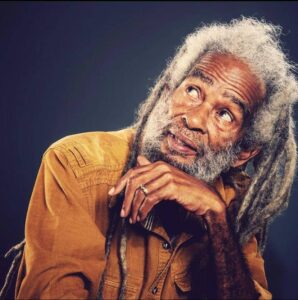
The ever-increasing burden of crime and violence
As we settle into the new year Jamaica continues to grapple with the multiple and varying manifestations of crime and violence on a daily basis. Many citizens will tell you that they live in fear, constantly worrying about who will be next.
Crime can be defined as behaviour considered deviant and subject to social sanctions. However, as Harriott (2000) notes, “In ex-colonial societies [like Jamaica] there are numerous instances of socially approved behaviour that are legally proscribed.”
In contemporary Jamaica, definitions of and concerns with crime generally hinge on its most extreme and violent manifestations. However, one should note that criminal acts include white-collar crimes, vehicular crimes, and other forms of deviance.
Crime and violence are not static variables and are, by definition, acts committed by people. Therefore, any meaningful effort to combat or reduce the upsurge in criminal and violent activities must also seek to address the problem at its origin — the individuals who engage in these activities.
The main factors affecting crime and violence in Jamaica cut across the political, social, economic, ideological, psychological, cultural, and administrative. These elements are all inter-related, as the general framework of the society at this time supports a culture of crime and violence on a broad continuum. This continuum extends from a passive, social acceptance of minor cheating and ‘Anancyism’, through to dangerous driving practices and white-collar crimes on the one hand to murder, rape, robbery, and a general breakdown of civil order on the other. This makes the issue of crime and violence a very complex one with no immediate or overnight solution.
In April 2001, after a period of extensive research and reading, I prepared and submitted a 19-page document titled ‘Social factors and crime and violence: A perspective from the ground’ to the then Government. The foregoing extract was taken from that almost 20-year-old paper, the multiple recommendations included were informed by discussions with a range of people, analysis of media articles and footage, and my extensive reading of some crucial documentation. These included the 1991 Hirst Report, the 1993 Report of the National Commission on Crime (The Wolfe Report), the 2000 Police Executive Forum Report (PERF Report), the 1997 World Bank Report titled ‘Violence and urban poverty in Jamaica: Breaking the cycle’, and Professor Tony Harriott’s 2000 book Police and Crime Control in Jamaica, among others.
I have listed these documents to underscore the point that a whole bookshelf or more of information specific to the Jamaican experience, all based on research on the ground, already exists about the causes and state of crime and violence in Jamaica. Since that time many other reports and documents have come from different groups and sectors that all include lengthy recommendations on how to tackle crime and violence in varying degrees.
Jamaica’s twin problem of crime and violence has generally been met by knee-jerk responses from the Government in response to an upsurge in violent activities, especially a spike in murders and gun crimes. More often than not, a crack team, special operation, special force or squad is created within the Jamaica Constabulary Force and deployed to deal with the immediate issues on the ground. The included table chronicles a few.
The current zone of special operation (ZOSO) effort is a hybrid animal — a kind of roving and ongoing state of emergency that is populated by members of the Jamaica Defence Force who have been deployed to quell upsurges of violence and attendant criminal activities in specific communities and restore peace and a sense of safety to these areas. In the main, these squads, forces, operations, states of emergencies, etc, have failed to quell the rise in criminal and violent activities.
Even though the majority of discussions about crime impute a connection with its primary partner, violence, not all crimes fall under the ambit of violence, and many non-violent crimes or white-collar crimes are on the increase in Jamaica today — even though there is significant under-reporting of these. Property crimes like credit card skimming and stealing money from your debit card or bank account have risen significantly, as have others like cellphone and laptop theft, handbag and purse snatching, and a variety of cons. This suggests that far more needs to be done to break the back of a supportive framework that encourages a range of corrupt and, ultimately, criminal activities, many of which end up in violent outbursts.
In addition, the rise of inter- and intra-personal conflicts that often end in violence, and some with fatalities, must be connected to the debates about violence and criminal activities. For example, domestic partner and/or spousal violence and homicides or murder-suicides also play a significant role in the new wave of rising acts of violence and adequate social measures put in place to tackle these. Many of these are related to social, economic, and gendered challenges that demand intervention before an ultimate violent explosion.
The real political will to put in place the connected platform of measures that will ensure a reduction of the love affair with criminal activities and its primary partner, violence, is still absent. This political will cannot emanate from above — that is, the Government and the police — without being met by a supportive network of citizens on the ground. Neither can this political will succeed if ideas about crime and violence are focused solely around Jamaica’s poorest and most dispossessed citizens. And, if political leaders continue to use crime and violence as a political football, then Jamaica and Jamaicans will continue to suffer. Crime and violence will remain at the doorsteps of all Jamaicans until and unless its roots are cut.
The way forward must also include measures that target the cultural and social predisposition to lawlessness in Jamaica. This begins with the individual. Indeed, how do we deal, for example, with the gendered predilection that men have towards aggression and violence that often results in fatalities?
I still wonder what would have been the long-term result if some of the social measures suggested in the 1993 Wolfe Report had been implemented at that time, almost 30 years ago. In my almost 20-year-old document I noted:
“Resocialisation of men: Overall the achievements of men have increasingly declined and many from poor backgrounds have increasingly less options for success. Men are more prone to get involved in criminal and violent activities. Of 33,507 arrests for various crimes in 1999, only 2,933 of those arrested were women.”
“The efforts of the Social Development Commission and the National Youth Service are commendable. However, more efforts should be put into the provision of social infrastructure for young men. Training facilities and community centres/sporting facilities must be developed and/or resurrected. Counselling and group interaction of men must be encouraged to develop a positive male image and provide positive role models. A national group utilising the approach of groups such as the Craig Town Initiative and Fathers Inc must be developed as a matter of priority.”
A lot of work has been done and more needs to be done. Nonetheless, as the years advance, it has become exceedingly clear that the Herculean task of ridding Jamaica of its high levels of crime and violence demands a broad-based slate of programmes, projects, and activities that cut across the social, cultural, gendered, political, economic, administrative, and psychological lines. This Herculean task will only begin to see some level of success if there is a broad-based social consensus across political party lines, across community, class and colour lines, and at all levels of the society that Jamaicans are tired of living in a crime- and violence-ridden society. We must urgently bell this cat as one united Jamaica; lest, like Sisyphus, we are condemned to roll this massive, ever-increasing burden of crime and violence up and down the slope of frustration for generations to come.
Donna P Hope, PhD, is professor of culture, gender and society at The University of the West Indies. Send comments to the Observer or dqueen13@hotmail.com.
























